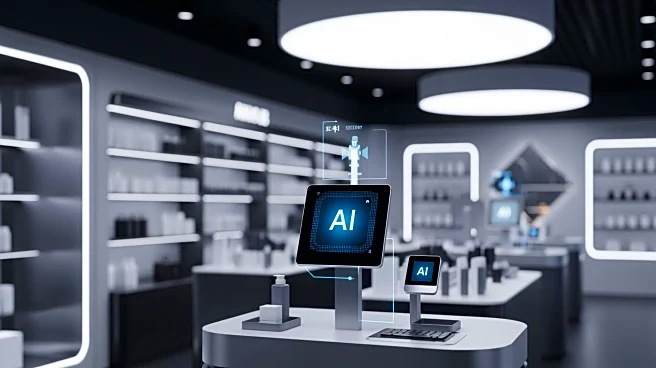What's Happening?
Radu Săndulescu, Data Analytics & AI Services Director at Zitec, discusses the strategic implementation of AI in retail. AI is transforming retail operations, from chatbots to predictive analytics, but
its success depends on embedding it into core operations with clear objectives. Companies using AI for customer experience, personalization, and automation see significant cost optimization and revenue growth. The key is to start with the problem, fix data and tech readiness, and involve cross-functional teams early.
Why It's Important?
AI's integration into retail operations offers significant benefits, including improved customer experience and streamlined processes. By focusing on strategic implementation, retailers can leverage AI to drive growth and enhance competitiveness. The emphasis on data quality and cross-functional collaboration highlights the importance of a holistic approach to AI adoption. As AI continues to evolve, retailers must adapt to changing technologies and consumer expectations to remain relevant in a competitive market.
What's Next?
Retailers are likely to continue exploring AI-driven strategies to enhance operations and customer engagement. As regulations like the EU AI Act evolve, companies must ensure compliance and transparency in AI usage. The focus on strategic implementation suggests potential for further innovations in AI applications, including personalized experiences and process optimization. Stakeholders, including technology partners and consumers, will need to navigate the evolving landscape of AI in retail.
Beyond the Headlines
The ethical considerations of AI in retail include concerns about data privacy and bias. As companies integrate AI into their operations, they must ensure transparency and fairness in decision-making. Additionally, the shift towards AI-driven strategies raises questions about the future of retail and the cultural impact of technology on consumer experiences.









